[25 March] Happy Independence Day Greece!
 •
by
•
by VampireA
General information
Population : 10.7 milion people (80th in the World,13th in Europe)
Total Area : 131,957 km^2 (95th in the World,15th in Europe)
Official languages : Greek
Official currency : Euro(EUR)
Capital : Athens
Population density : 82 people/km^2 (125th in the World,36th in Europe)
Top 5 biggest cities : Athens, Thessaloniki, Patras, Heraklion, Larissa
Greece is a unitary parliamentary republic. The nominal head of state is the President of the Republic, who is elected by the Parliament for a five-year term. The current Constitution was drawn up and adopted by the Fifth Revisionary Parliament of the Hellenes and entered into force in 1975 after the fall of the military junta of 1967–1974. It has been revised three times since, in 1986, 2001 and 2008. The Constitution, which consists of 120 articles, provides for a separation of powers into executive, legislative, and judicial branches, and grants extensive specific guarantees (further reinforced in 2001) of civil libertiesand social rights. Women's suffrage was guaranteed with an amendment to the 1952 Constitution.
According to the Constitution, executive power is exercised by the President of the Republic and the Government. From the Constitutional amendment of 1986 the President's duties were curtailed to a significant extent, and they are now largely ceremonial; most political power thus lies in the hands of the Prime Minister. The position of Prime Minister, Greece's head of government, belongs to the current leader of the political party that can obtain a vote of confidence by the Parliament. The President of the Republic formally appoints the Prime Minister and, on his recommendation, appoints and dismisses the other members of the Cabinet.
Eighty percent of Greece consists of mountains or hills, making the country one of the most mountainous in Europe. Mount Olympus, the mythical abode of the Greek Gods, culminates at Mytikas peak 2,918 metres , the highest in the country. Western Greece contains a number of lakes and wetlands and is dominated by the Pindus mountain range. The Pindus, a continuation of the Dinaric Alps, reaches a maximum elevation of 2,637 m at Mt. Smolikas (the second-highest in Greece) and historically has been a significant barrier to east-west travel.
The Pindus range continues through the central Peloponnese, crosses the islands of Kythera and Antikythera and finds its way into southwestern Aegean, in the island of Crete where it eventually ends. The islands of the Aegean are peaks of underwater mountains that once constituted an extension of the mainland. Pindus is characterized by its high, steep peaks, often dissected by numerous canyons and a variety of other karstic landscapes. The spectacular Vikos Gorge, part of the Vikos-Aoos National Park in the Pindus range, is listed by the Guinness book of World Records as the deepest gorge in the world. Another notable formation are the Meteora rock pillars, atop which have been built medieval Greek Orthodox monasteries.
Northeastern Greece features another high-altitude mountain range, the Rhodope range, spreading across the region of East Macedonia and Thrace; this area is covered with vast, thick, ancient forests, including the famous Dadia forest in the Evros regional unit, in the far northeast of the country.
Extensive plains are primarily located in the regions of Thessaly, Central Macedonia and Thrace. They constitute key economic regions as they are among the few arable places in the country. Rare marine species such as the pinniped seals and the loggerhead sea turtle live in the seas surrounding mainland Greece, while its dense forests are home to the endangered brown bear, the Eurasian lynx, the roe deer and the wild goat.



National sport : Football

Basketball

Backgammon or tavli

National animals : Dolphine - symbol of the sea

Owl - symbol of wisdom

Horse - symbol of war

National plant: Olive tree (Olea europaea)
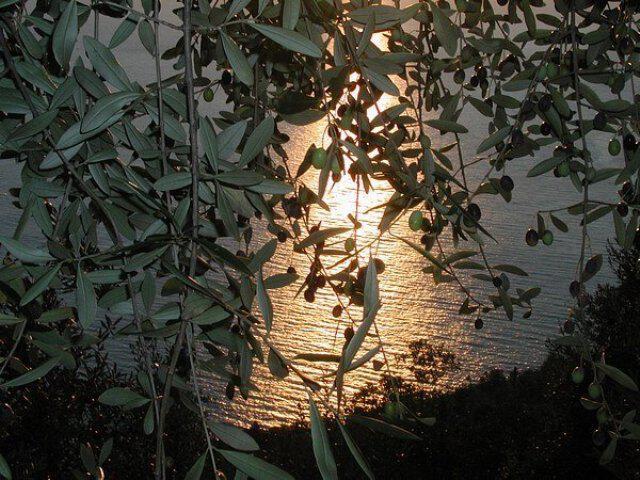
Laurel (Laurus nobilis)

National instruments: Bouzouki

Pontic kemenche


The significance of the 25th of March
March 25, 1821, is a historical day for Hellenism and The Greek Nation! It is the official date they started the armed liberation combat against the Ottoman occupation of their territories! It started from the Peloponnese and gradually spread to the rest of Greece. It's common known as the "1821 Uprising" (Epanastasi tou 1821 in Greek) and symbolize to the next generations our try for Freedom, Independence and Justice. There are unofficial data about the revolution being started a little bit earlier, 21 february, in Moldavia and Wallachia and spreading from there, but you can research on your on about this, or ask others.
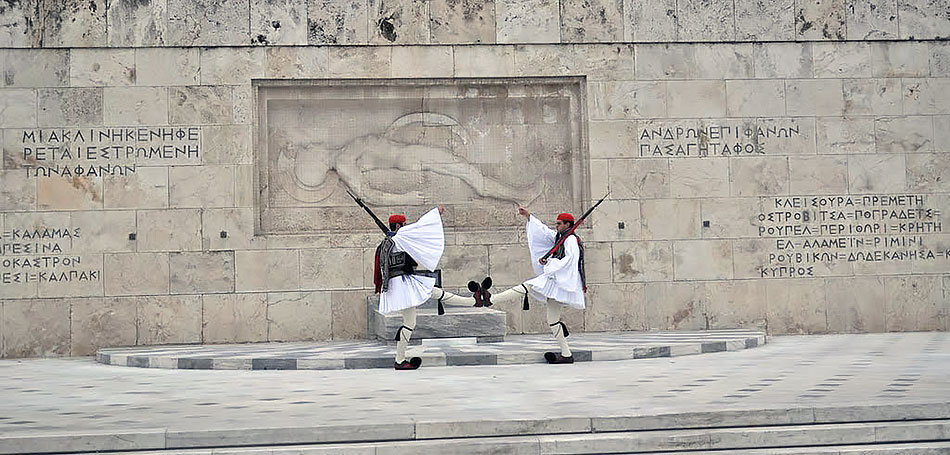
The 25 March has double celebration for Greeks. The Orthodox Church celebrating the Annunciation to the Blessed Virgin Mary (Evangelismos). It is the announcement by the angel Gabriel to the Virgin Mary that she would conceive and become the mother of Jesus, the Son of God. In Agia (Holy) Lavra, (a monastery in Achaea-Peloponnese) that date, on 1821, Bishop Germanos of Patras, performed a doxology and administered an oath to the Peloponnesian fighters. Was first heard "Freedom or Death" (Eleftheria I Thanatos) launching the revolution against the Ottoman empire.




Time to talk about one of the most interesting facets of Greek culture: their mythology! Everyone has heard about some Greek gods like Zeus and Apollo. But how do we know so much about them and their relations between each other and between them and humans? The answer is an epic poem written somewhere between the 8th and 7th centuries B.C by the Greek poet, Hesiod. This poem is called Theogony (“the birth of the gods”) and it is broadly divided between 3 ages:
1.The Age of Gods , which comprises the myths about the origin of the world, the gods and humans
2.The Age when Gods and Mortals mingled freely, which contains stories of early interactions between gods, demigods and mortals
3.The Heroic Age, in which divine activity is more limited. The last and greatest legend of this age is the Trojan War.



The myth of creation begins with Chaos, a yawning nothingness. Out of the void emerged Gaia (the Earth) and some other primary divine beings: Eros (Love), the Abyss (the Tartarus), and the Erebus (the Darkness).Without male assistance, Gaia gave birth to Uranus (the Sky) who then fertilized her. From that union were born first the Titans—six males: Coeus, Crius, Cronus, Hyperion, Iapetus, and Oceanus; and six females: Mnemosyne, Phoebe, Rhea, Theia, Themis, and Tethys. After Cronus was born, Gaia and Uranus decreed no more Titans were to be born.
They were followed by the one-eyed Cyclopes and the Hecatonchires or Hundred-Handed Ones, who were both thrown into Tartarus by Uranus. This made Gaia furious. Cronus ("the wily, youngest and most terrible of Gaia's children"), was convinced by Gaia to castrate his father. He did this, and became the ruler of the Titans with his sister-wife Rhea as his consort, and the other Titans became his court.
Castration of Uranus (fresco from the Italian Renaissance) :

A motif of father-against-son conflict was repeated when Cronus was confronted by his son, Zeus. Because Cronus had betrayed his father, he feared that his offspring would do the same, and so each time Rhea gave birth, he snatched up the child and ate it. Rhea hated this and tricked him by hiding Zeus and wrapping a stone in a baby's blanket, which Cronus ate. When Zeus was full grown, he fed Cronus a drugged drink which caused him to vomit, throwing up Rhea's other children and the stone, which had been sitting in Cronus's stomach all along. Zeus then challenged Cronus to war for the kingship of the gods. At last, with the help of the Cyclopes (whom Zeus freed from Tartarus), Zeus and his siblings were victorious, while Cronus and the Titans were hurled down to imprisonment in Tartarus.
Zeus was plagued by the same concern, and after a prophecy that the offspring of his first wife, Metis, would give birth to a god "greater than he", Zeus swallowed her. She was already pregnant with Athena, however, and she burst forth from his head—fully-grown and dressed for war.
Birth of Athena:

According to Classical-era mythology, after the overthrow of the Titans, the new pantheon of gods and goddesses was confirmed. Among the principal Greek gods were the Olympians, residing on Mount Olympus under the eye of Zeus. (The limitation of their number to twelve seems to have been a comparatively modern idea.) Besides the Olympians, the Greeks worshipped various gods of the countryside, the satyr-god Pan, Nymphs (spirits of rivers), Naiads (who dwelled in springs), Dryads (who were spirits of the trees), Nereids (who inhabited the sea), river gods, Satyrs, and others. In addition, there were the dark powers of the underworld, such as the Erinyes (or Furies), said to pursue those guilty of crimes against blood-relatives.
The gods of Greek mythology are described as having essentially corporeal but ideal bodies. According to Walter Burkert, the defining characteristic of Greek anthropomorphism is that "the Greek gods are persons, not abstractions, ideas or concepts". Regardless of their underlying forms, the Ancient Greek gods have many fantastic abilities; most significantly, the gods are not affected by disease, and can be wounded only under highly unusual circumstances. The Greeks considered immortality as the distinctive characteristic of their gods; this immortality, as well as unfading youth, was insured by the constant use of nectar and ambrosia, by which the divine blood was renewed in their veins.
Mount Olympus:

Most gods were associated with specific aspects of life. For example, Aphrodite was the goddess of love and beauty, Ares was the god of war, Hades the ruler of the underworld, and Athena the goddess of wisdom and courage.Some gods, such as Apollo and Dionysus, revealed complex personalities and mixtures of functions, while others, such as Hestia (literally "hearth") and Helios (literally "sun"), were little more than personifications. The most impressive temples tended to be dedicated to a limited number of gods, who were the focus of large pan-Hellenic cults. It was, however, common for individual regions and villages to devote their own cults to minor gods. Many cities also honored the more well-known gods with unusual local rites and associated strange myths with them that were unknown elsewhere. During the heroic age, the cult of heroes (or demi-gods) supplemented that of the gods.
Bridging the age when gods lived alone and the age when divine interference in human affairs was limited was a transitional age in which gods and mortals moved together. These were the early days of the world when the groups mingled more freely than they did later. Most of these tales were later told by Ovid's Metamorphoses and they are often divided into two thematic groups: tales of love, and tales of punishment.
Tales of love often involve incest, or the seduction or rape of a mortal woman by a male god, resulting in heroic offspring. The stories generally suggest that relationships between gods and mortals are something to avoid; even consenting relationships rarely have happy endings. In a few cases, a female divinity mates with a mortal man, as in the Homeric Hymn to Aphrodite, where the goddess lies with Anchises to produce Aeneas.
The second type (tales of punishment) involves the appropriation or invention of some important cultural artifact, as when Prometheus steals fire from the gods, when Tantalus steals nectar and ambrosia from Zeus' table and gives it to his own subjects—revealing to them the secrets of the gods, when Prometheus or Lycaon invents sacrifice, when Demeter teaches agriculture and the Mysteries to Triptolemus, or when Marsyas invents the aulos and enters into a musical contest with Apollo.
Prometheus,Bringer of Fire:

The age in which the heroes lived is known as the heroic age. The epic and genealogical poetry created cycles of stories clustered around particular heroes or events and established the family relationships between the heroes of different stories; they thus arranged the stories in sequence.
The monumental events of Heracles are regarded as the dawn of the age of heroes. To the Heroic Age are also ascribed three great events: the Argonautic expedition, the Theban Cycle, and the Trojan War.
Heracles vs. Cerberus:

Heracles, known more widely by his Roman name, Hercules, is famous for his 12 deeds and for being THE symbol of masculinity in ancient times, so much so, that certain Roman emperors, like Commodus and Maximian, identified themselves with him.
Still from the 1963 film Jason and the Argonauts :

*if you liked the 1981 classic Clash of the Titans, you will love this, since the special effects are made by the same person, stop-motion legend Ray Harrihausen
The Argonautic expedition tells the story of Jason’s expedition to the distant land of Colchis to retrieve the Golden Fleece. The name comes from the ship, Argo, named after its builder, Argus.
Oedipus:

In between the Argo and the Trojan War, there was a generation known chiefly for its horrific crimes. This includes the doings of Atreus and Thyestes at Argos.
The Theban Cycle deals with events associated especially with Cadmus, the city's founder, and later with the doings of Laius and Oedipus at Thebes; a series of stories that lead to the eventual pillage of the city. As far as Oedipus is concerned, early epic accounts seem to have him continuing to rule at Thebes after the revelation that Iokaste was his mother, and subsequently marrying a second wife who becomes the mother of his children — markedly different from the tale known to us through tragedy (e.g. Sophocles' Oedipus Rex) and later mythological accounts.
The Trojan Horse:

Greek mythology culminates in the Trojan War, fought between Greece and Troy, and its aftermath. In Homer's works, such as the Iliad, the chief stories have already taken shape and substance, and individual themes were elaborated later, especially in Greek drama. The Trojan War also elicited great interest in the Roman culture because of the story of Aeneas, a Trojan hero whose journey from Troy led to the founding of the city that would one day become Rome.
The Trojan War is fairly complex, featuring many characters and events that are better read at each reader’s own pace. Many of you has surely heard about Achilles, the Trojan Horse, Odysseus, Agammemnon and many others.

Top 5 visited places by tourists
Greek Islands

*Santorini

*Mykonos

*Rhodes

*Corfu
The beautiful and exotic Greek islands lure droves of tourists every year, making them one of the world’s top travel destinations. With more than 2,000 islands to choose from they may initially be bewildered by their number and variety. From gorgeous beaches, ancient ruins, colorful harbors and active volcanoes the Greek islands have it all.
Athens
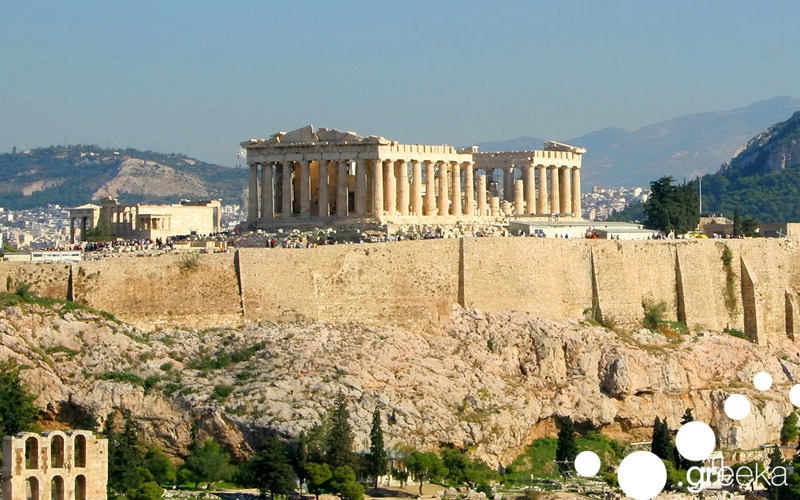
*Pathenon Temple, Acropolis

*Theatre of Dionysus


Inhabited for more than 3,000 years, Athens is widely known as the cradle of Western civilization and the birthplace of democracy. The city presents a confusing blend of historical and modern features. Athens is famous for its archaeological ruins and monuments such as the famous Acropolis, the Parthenon, the Ancient Agora and the Theatre of Dionysos just to name a few. However, Athens is not just about ancient ruins. This bustling city is also an important center for business, culture and nightlife.
Meteora



The Greek word meteora means “suspended in the air,” and this phrase aptly describes the spectacular cliffs that rise more than 366 meters into the air overlooking the villages of Kalambaka and Kastraki in the north central mainland of Greece. What makes these cliffs even more inspiring are the historic monasteries perched along the summits. Dating back to the 14th and 16th centuries, the monasteries at Meteora were built by monks seeking spiritual isolation and freedom from religious persecution.
Delphi



Second to the Acropolis in Athens, Delphi is Greece’s most popular archaeological site. Located about two and half hours from Athens along the slopes of the awe-inspiring Mount Parnassus, Delphi was once revered by the ancient Greeks as the center of the earth.
Dedicated to the god, Apollo, Delphi was an important oracle. In ancient times, people would come to this sacred spot to inquire of the priestess for advice on a wide range of topics from farming to relationships and politics. Significant ruins and structures at Delphi include the Temple of Apollo, the Athenian Treasury, the theater and hippodrome that once hosted events of the ancient Pythian Games.
Crete



The largest of the Greek islands, Crete is a spacious land of pleasing contrasts where landscapes range from stunning coastline to rugged mountains and rolling countryside dotted with olive trees. Bustling metropolitan cities spread beyond to quiet villages centered around outdoor coffee shops. Steeped in history, Crete still bears archaeological traces of the many civilizations that inhabited it down through the centuries.

Top 3 locations suggested by the locals
Evrytania



Evrytania is one of the regional units of Greece. It is part of the region of Central Greece. Its capital is Karpenisi.The region is almost entirely formed of mountains, including the Tymfristos and the Panaitoliko in the south. Its rivers include the Acheloos in the west, Agrafiotis to the east, and Megdova in the east flowing down to the Ionian Sea. It is one of the least populated regional units in Greece. Evrytania also features a famous skiing resort located near Karpenisi on the Tymfristos mountain.
Prespes



Prespes is a municipality in the Florina regional unit, Greece. Population 1,560 (2011). The seat of the municipality is in Laimos. It was named after Lake Prespa, in the western part of the municipality.
Parga and Syvota



In the north western coastline of Epirus with the view of the blue-green waters of the Ionian archipelago, captivating Parga and exotic Syvota do constitute an irresistible pair with an insular breeze and cosmopolitan aura, which will certainly steal your hearts.

Inventions Greece gave to the world!
*Democracy!
*Athens, 508/507 B.C.

*Archimedes screw!
*Archimedes, 3rd century B.C.

*Papanicolaou test (Pap smear) - screening test for cervical cancer!
*Georgios Papanikolaou, 1923 A.D.

*Crane!
*6th century B.C

*Astrolabe!
*Apollonius of Perga, between 220 and 150 B.C


Famous people from Greece
Archimedes of Syracuse - Greek mathematician, physicist, engineer, inventor, and astronomer. Although few details of his life are known, he is regarded as one of the leading scientists in classical antiquity. Generally considered the greatest mathematician of antiquity and one of the greatest of all time, Archimedes anticipated modern calculus and analysis by applying concepts of infinitesimals and the method of exhaustion to derive and rigorously prove a range of geometrical theorems, including the area of a circle, the surface area and volume of a sphere, and the area under a parabola.
(287 - 212 B.C.)
Hippocrates of Kos - also known as Hippocrates II, was a Greek physician of the Age of Pericles (Classical Greece), and is considered one of the most outstanding figures in the history of medicine. He is often referred to as the "Father of Medicine" in recognition of his lasting contributions to the field as the founder of the Hippocratic School of Medicine. This intellectual school revolutionized medicine in ancient Greece, establishing it as a discipline distinct from other fields with which it had traditionally been associated (theurgy and philosophy), thus establishing medicine as a profession.
(460-370 B.C.)
Sophocles - one of three ancient Greek tragedians whose plays have survived. His first plays were written later than those of Aeschylus, and earlier than or contemporary with those of Euripides. Sophocles wrote over 120 plays during the course of his life, but only seven have survived in a complete form: Ajax, Antigone, The Women of Trachis, Oedipus Rex, Electra, Philoctetes and Oedipus at Colonus. For almost 50 years, Sophocles was the most celebrated playwright in the dramatic competitions of the city-state of Athens that took place during the religious festivals of the Lenaea and the Dionysia. He competed in 30 competitions, won 24, and was never judged lower than second place. Aeschylus won 13 competitions, and was sometimes defeated by Sophocles, while Euripides won 4 competitions.
The most famous tragedies of Sophocles feature Oedipus and also Antigone: they are generally known as the Theban plays, although each play was actually a part of a different tetralogy, the other members of which are now lost. Sophocles influenced the development of drama, most importantly by adding a third actor, thereby reducing the importance of the chorus in the presentation of the plot. He also developed his characters to a greater extent than earlier playwrights such as Aeschylus.
(497/496 - 406/405 B.C.)
Ioannis Kapodistrias - was a Greek statesman who served as the Foreign Minister of the Russian Empire and was one of the most distinguished politicians and diplomats of Europe. After a long and distinguished career in European politics and diplomacy he was elected as the first head of state of independent Greece (1827–31). He is considered as the founder of the modern Greek state, and of Greek independence.
(1776 - 1831 A.D.)
Alexander the Great - was a king (basileus) of the ancient Greek kingdom of Macedon and a member of the Argead dynasty. He spent most of his ruling years on an unprecedented military campaign through Asia and northeast Africa, and he created one of the largest empires of the ancient world by the age of thirty, stretching from Greece to northwestern India. He was undefeated in battle and is widely considered one of history's most successful military commanders.
Alexander's legacy includes the cultural diffusion and syncretism which his conquests engendered, such as Greco-Buddhism. He founded some twenty cities that bore his name, most notably Alexandria in Egypt. Alexander's settlement of Greek colonists and the resulting spread of Greek culture in the east resulted in a new Hellenistic civilization, aspects of which were still evident in the traditions of the Byzantine Empire in the mid-15th century AD and the presence of Greek speakers in central and far eastern Anatolia until the 1920s. He is often ranked among the most influential people in history.
(356-323 B.C.)
Plato - philosopher in Classical Greece and the founder of the Academy in Athens, the first institution of higher learning in the Western world. He is widely considered the most pivotal figure in the development of philosophy, especially the Western tradition.Unlike nearly all of his philosophical contemporaries, Plato's entire work is believed to have survived intact for over 2,400 years.
Along with his teacher, Socrates, and his most famous student, Aristotle, Plato laid the foundations of Western philosophy and science.Alfred North Whitehead once note
😛"the safest general characterization of the European philosophical tradition is that it consists of a series of footnotes to Plato." In addition to being a foundational figure for Western science, philosophy, and mathematics, Plato has also often been cited as one of the founders of Western religion and spirituality.
(428/427 or 424/423 - 348/347 B.C.)

Traditional food
Moussaka

One of Greece's most famous dishes, moussaka consists of layers of fried aubergine, minced meat and potatoes, topped with a creamy béchamel sauce and then baked until golden brown.
Fasolatha

Another of Greece’s national dishes, although not so well known internationally, is this classic white bean soup. It’s a simple, yet hearty affair consisting of beans, crushed tomatoes, and vegetables such as onions, carrots and celery. It’s often flavoured with thyme, parsley and bay leaves.
Gyros

A bit like a kebab, a gyro is a typical Greek sandwich. It consists of pieces of meat (usually chicken, pork, lamb or beef) cooked on a rotisserie and wrapped in a flatbread or pita along with salad, onions and a variety of sauces. Vegetarian versions can include grilled halloumi (a salty Cypriot cheese made from a mix of sheep’s and goat’s milk) or feta cheese instead of the meat.
Souvlaki

Perennially popular all over the world, these grilled meat (usually pork) skewers are often served with tzatziki (a sauce made from yoghurt, cucumber and mint), pita bread, salad or rice.
Tzatziki

This famous sauce, made of yogurt,cucumbers and dill as the main ingredients, is served with all forms of grilled meat and it can also be used as a dip.
Lahanodolmades

Like all self-respecting nations in this part of the world, Greeks also have their variation of stuffed cabbage leaves. The stuffing usually consists of meat,rice,herbs and onion. There is also dolmadakia, which are made with vine leaves instead of cabbage.
Spanakopita

Spanakopita, otherwise known as Greek spinach pie is a traditional yet delicious recipe. With its versatility the dish matches with every time of the day. Be it dinner, as a snack or starter Spanikopita will definitely satisfy your taste buds. Feta cheese, butter, olive oil all are mixed and baked until golden crispy perfection.
Magiritsa

Magiritsa is a Greek soup made from lamb offal, associated with the Easter tradition of the Greek Orthodox Church. Accordingly, Greek-Americans and Greek-Canadians sometimes call it "Easter soup", "Easter Sunday soup", or "Easter lamb soup".
Since Greece is a seafaring nation, they will also eat plenty of seafood as we will see in the following images:
Octopus in tomato sauce

Fried shrimp

Bourdetto

Traditional desserts
Baklava

This rich,sweet pastry, made of layers of filo and chopped nuts and held together with syrup and honey, is a very popular dessert in Greece, but also in the rest of the Balkans, Turkey and the Caucasus.
Revani

This dessert is a spongecake made from cooked semolina and soaked in syrup, with some recipes adding coconut. Popular across Greece, but also in Turkey and the Middle East.
Kserotigana

These fritters,cooked in olive oil and originating from Crete, combine the delicious idea of a doughnut with a mix of syrup and nuts, making it a delicious dessert that you can binge on.
It is similar to another Greek dessert, diples, but kserotigana have a specific spiral shape that sets them apart.
Bougatsa

This dessert consists of a phyllo pastry filled with semolina custard, or sometimes with cheese and even minced meat. It is usually eaten for breakfast, but no time of the day can affect the delicious taste.
Amygdalota

Amygdalota is gluten-free almond cookie that is wildly popular in Greece and are the perfect match to a warm cup of Greek coffee. Whether it is a family or friends gathering, Amygdalota reflects the images of good times warm relationships. This food may vary a bit in different parts of Greece, but almonds being the dominant ingredient throughout the regions.
Traditional drinks
Ouzo

Ouzo is Greece’s most popular spirit. It is anise-flavored, similar in taste to Sambuca.
Tsipouro (pomace brandy)

Retsina wine

Frappé coffee


Interesting facts about Greece
1.Approximately 16.5 million tourists visit Greece each year, more than the country’s entire population. Tourism constitutes nearly 16% of the Gross Domestic Product (GDP).
2.No one in Greece can choose to not vote. Voting is required by law for every citizen who is 18 or older.
3.The world’s third leading producer of olives, the Greeks have cultivated olive trees since ancient times. Some olive trees planted in the thirteenth century are still producing olives.
4.Greece is the most sexually active nation on earth, averaging 164 sessions a year.
5.Greece has zero navigable rivers because of the mountainous terrain. Nearly 80% of Greece is mountainous.
6.Thousands of English words come from the Greek language, sometimes via the Roman adaptation into Latin and then to English. Common English words from Greek include “academy,” “apology,” “marathon,” “siren,” “alphabet,” and “typhoon.”
7.Over 40% of the population lives in the capital Athens (Athina in Greek). Since becoming the capital of modern Greece, its population has risen from 10,000 in 1834 to 3.6 million in 2001.
8.Retirement homes are rare in Greece. Grandparents usually live with their children’s family until they die. Most young people live with their families until they marry.
9.In Greece, the dead are always buried because the Greek Orthodox Church forbids cremation. Five years after a burial, the body is exhumed and the bones are first washed with wine and then placed in an ossuary. This is done in part to relieve the shortage of land in Greek cemeteries.
10.Greeks do not wave with an open hand. In fact, it is considered an insult to show the palm of he hand with the fingers extended. Greeks wave with the palm closed.

My 5 words when I hear about Greece:
#Islands,#Mountains,#Orthodoxy,#Olives,#Polis
What are your 5?

Special thanks to the greek comunity which you can see below and a message from them:

Μπορούμε να παίζουμε και να φιλοσοφούμε ταυτόχρονα
🙂
Το ένα μας προφίλ είναι πραγματικό και το άλλο εικονικό. Το διάστημα μεταξύ πραγματικού και εικονικού είναι ο καθρέφτης στον οποίο μπορούμε να κοιταχτούμε ανφάς.
ΥΓ. Ελευθερώστε μας”
We can play and philosophize at the same time
🙂
Our one profile is real and the other one is virtua.lThe space between real and virtual is the mirror in which we can look straight
PS. Liberate us”
I leave you with some greek memes:



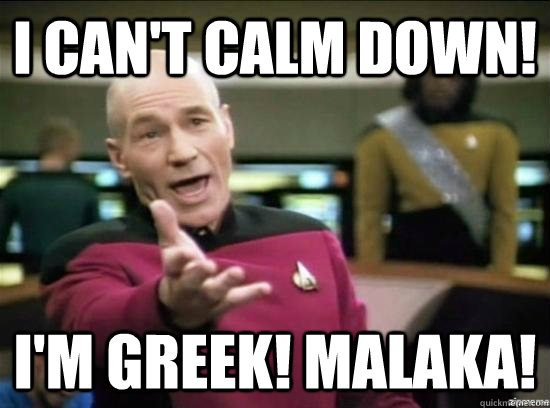
Waiting for feedback , comments , opinions and if there is anyone that thinks I missed something , I could do something better or just wants to help me with this project , PM me !
Special thanks to Kariky for the spacers !!
Hope you enjoyed and see you next time!
P.S. Article 43/74!












































P.S.2. Don't forget to push the flags !


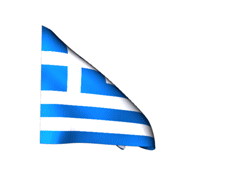
Comments
Χρόνια πολλα ο7
Good stuff. Baklavaua nu e desert turcesc?
s-au imbinat culturile in zona aia .. deci e greu sa zici de la care a venit prima data .. baclava au atat turcii cat si majoritatea tarilor balcanice din cauza trecerii imperiului otoman
Ok
yes it is
does nomads have a cuisine? or is more plausible they inheritated foods from occupied countries, so it isn't
Very nice article
Happy Independence Day Greece!
Happy Independence Day Greece!
voted
V!
σπουδαία προσωπικότητα ο Μεταξάς και όχι ο Βενιζέλος που τριπλασίασε τη Ελλάδα, οκ...
english would help 😃
o thee mou den alazei o anthropos telika
ούτε και η ιστορία
καλα αστο εχεις χαθει εντελώς
εγώ θα έλεγα ο Μεγας Αλέξανδρος που την εικοσαπλασίασε
οχι ρε! αυτος ηταν σφαγεας των λαων! δεν το εμαθες? μαλλον αμερικανος ηταν!
Eixes dikio. To ftiaxame sto eswteriko kukliko giati eleipe kai o megalexandros (fantasou)
Edw den vlepw pouthena tin Naxo.... Fantasou!! 😛
Your comment pls about the pic with gyros and potatoes.... 😃
Όποιος βάζει τον Μεταξά πάνω απο τον Βενιζέλο είναι ηλίθιος
Όποιος βάζει τον Βενιζέλο είναι ηλίθιος αλλά οκ
Ιστορία ξέρεις;
Για να το γράφω κάτι ξέρω και εγώ 😉
Για να λες ότι ο Βενιζέλος όχι μόνο είναι κάτω απο τον Μεταξά, αλλά δεν είναι καν στη λίστα των μεγάλων Ελλήνων, όχι μόνο δεν ξέρεις ιστορία, δεν έχεις και ιδιαίτερη νόηση
Πίστευε αυτό που λες δεν με αγγίζει η γνώμη σου
Voted!
Very good presentation of my country 🙂
o7
Voted.
Very good article! 🙂
Happy National Day Greece
So many smilar things with our neighbour.
o7
v+s
freedom of death
Nice article
hard voted
amazing article !!! 🙂
o7
Malakas
Greetings from Iran ❤
🇬🇷🇮🇷
another great ancient empire! o/
Great article
ο7
Nough said.-
Happy Independence Day Greece!
vote
nice people ;*
vote, nice try..
http://prntscr.com/iw1a3p
"Are you Greek? Why do you bend the knee? Stand up! Even to the Gods we talk standing up!"
Theodoros Kolokotronis
Famous people from Greece: The First is Alexander the Great
Vote
Done
I think your article exceeds the expectations. Αn extraordinary effort, from a great Philhellene. hard Vote..
Freedom or Death
Happy Independence Day Greece!